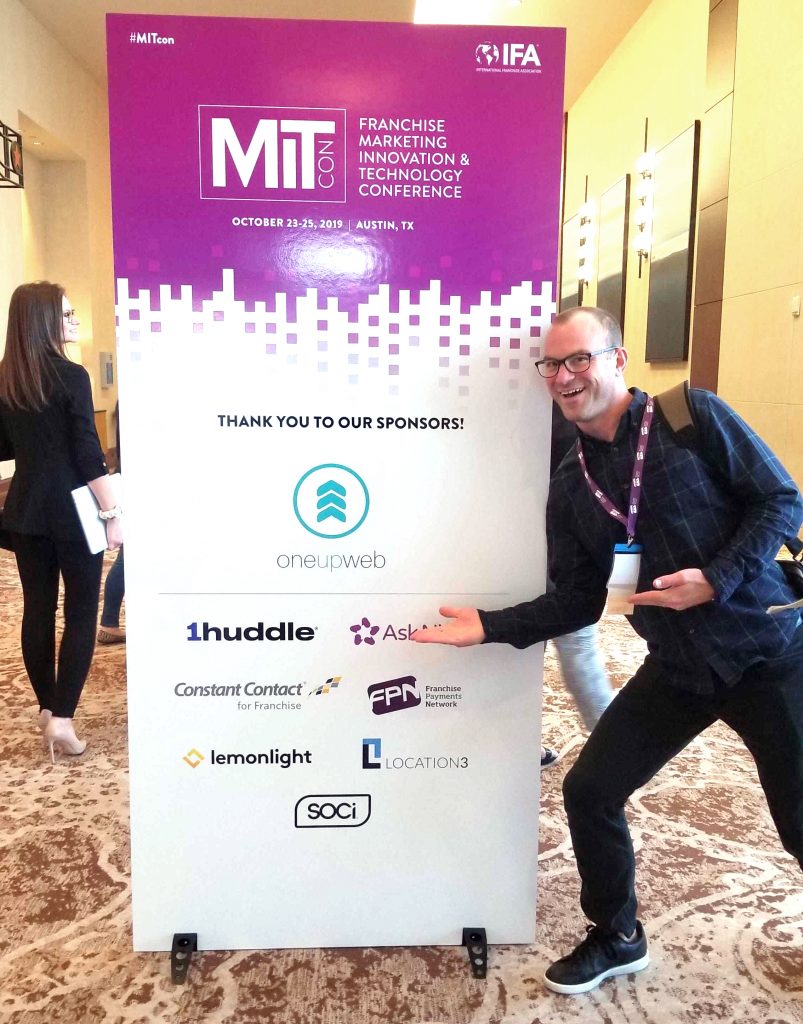MITcon 2019: What Franchisors Need to Know About Marketing & Technology
The big takeaway from this year’s Franchise Marketing Innovation & Technology Conference (MITcon) in Austin, Texas is to slow down and see the consumer through the technology. While “slowing down” seems like the wrong advice in a fast-moving industry like digital marketing, it’s important to fully understand why you’re investing in new technology or new marketing initiatives.
It’s too easy to get distracted by shiny new initiatives that other brands are testing or vendors are aggressively pushing. This makes it easy for brand managers to leave these conferences feeling overwhelmed and antiquated. Yes, technology is important. Big data is important. But how do you make it work for your brand? How do you use big data to connect with your audience? And how do you choose what technology to invest in with the limited marketing budget you have?
Our Favorite Session
Tricia Wang entertained these questions in her keynote presentation. Wang likened big data to one of the most revolutionary kernels of technology of all time: corn. Christopher Columbus brought this technology back to Europe with little knowledge of how it works. They didn’t know to treat the grain with a solution of alkali, a process that makes niacin nutritionally available. Niacin prevents pellagra, a truly horrific disease.
Improper use of the technology (corn) led to a massive outbreak of pellagra.
While the consequences may not be as life-threatening in today’s marketing world, misinterpreting big data can cause marketers to completely miss the mark and turn off once-loyal consumers (see Tesco case study).
As co-founder of Sudden Compass, Wang and her team help companies make the most of their data. Wang introduced the room to the term “thick data,” which is just a buzzier word for qualitative market research. She preaches that the secret to applying big data successfully is by cross-reference it with thick data.
As seen on one of her slides:
- Big data is machine intelligence; thick data is human intelligence.
- Big data gives us content; thick data gives us context.
- Big data gives us scale; thick data gives us depth.
- Big data tells us what; thick data tells us why.
- Big data gives us knowns; thick data gives us unknowns.
The big takeaway: Don’t let technology widen the gap between you and the consumer.

The Most Interesting Thing We Learned
There was an excellent example of thick data in a presentation by Kathy Collins, the Chief Marketing Officer at Massage Envy. Collins and her team sought to debunk the belief that massages are only for rich people. To do this, they invested in qualitative research (a.k.a. thick data). They took to the streets and interviewed passersby about massages and people who get massages. For example, they asked people “how would you describe someone who gets massages regularly” and “how does getting a massage make you feel?”
This exercise gave them great insight into widely-held perceptions. It also gave them great content, especially when they found a woman who represented their true audience (not rich, not an athlete). Collins and her team were then able to take the qualitative data and produce a series of videos that highlight exactly how much strain your back and body endure on a daily basis. These videos seriously make your back sore. They also adopted messaging that helps change the perception that massage is not for everyone.
We appreciated the examples shared, as some sessions were too “big picture” to walk away with anything actionable. Kudos to Collins and her team at Massage Envy. It was one of the last sessions, and one of the most applicable.
Reasons We’ll Be Back Next Year
After attending the ginormous IFA 2019 Annual Convention in Las Vegas, we really appreciated the size of MITcon. With nearly 150 attendees, the content was more relevant and the vibe was more intimate. As a premier sponsor of the event, it was not our goal to pitch every person we met. Not at all. Our goal was to make meaningful connections with the attendees and have a good time with a handful of our clients. We appreciated the round-table discussions and the conversations that occurred organically, by bumping into the same people again and again. While we’re certainly looking forward to IFA’s annual convention in Orlando (February 2020), we’re even more excited about MITcon 2020.
